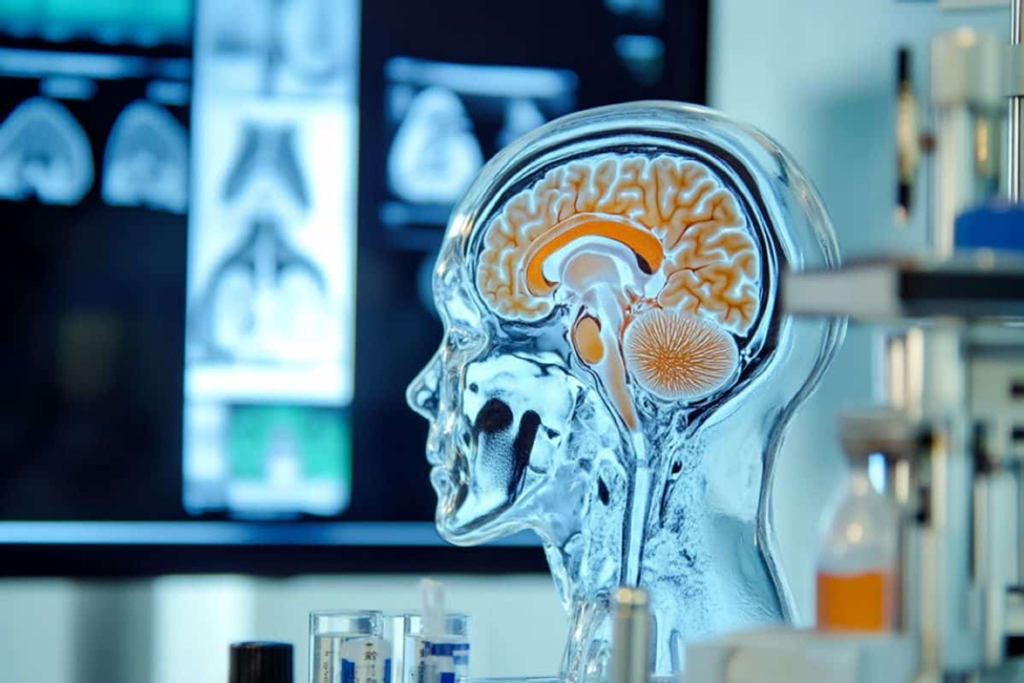In an exciting new development, scientists at the University of Rochester Medical Center have uncovered a promising approach to reverse the age-related decline in the brain’s waste removal system, which is crucial for clearing out harmful waste. This discovery, published in Nature Aging, could be a game-changer in the fight against neurodegenerative diseases like Alzheimer’s and Parkinson’s.
Waste Removal System: The “Dirty Brain” Dilemma
Neurodegenerative diseases are often called “dirty brain” disorders because they involve the buildup of toxic proteins and other waste products that the brain fails to eliminate effectively. As we age, the brain’s waste removal system—known as the glymphatic system—slows down. This slowdown paves the way for the accumulation of damaging proteins such as beta-amyloid, tau, and alpha-synuclein, all of which are strongly associated with Alzheimer’s and Parkinson’s diseases.
The glymphatic system, described by Dr. Maiken Nedergaard and her team in 2012, is crucial in keeping the brain clean. This system works by flushing out excess proteins and other metabolic waste products brain cells generate during normal activity. However, as the years go by, the efficiency of this system diminishes, leading to a toxic buildup that contributes to the progression of neurodegenerative diseases.
Reversing the Tide: A Potential New Treatment
The University of Rochester research team, led by Dr. Douglas Kelley, Professor of Mechanical Engineering, has now identified a novel way to rejuvenate this vital waste-clearing system.
“This research shows that restoring cervical lymph vessel function can substantially rescue the slower removal of waste from the brain associated with age,” Dr. Kelley explained.

“Moreover, this was accomplished with a drug already being used clinically, offering a potential treatment strategy.”
The study combines advanced imaging and particle tracking techniques to reveal, for the first time, the detailed pathway through which cerebrospinal fluid (CSF)—carrying brain waste—exits via the cervical lymph vessels in the neck. This process is driven by tiny, rhythmically contracting pumps called lymphangions. These pumps propel the waste-laden CSF out of the brain and toward the lymphatic system, where it is processed and eliminated.
Aging and the Glymphatic System: What Goes Wrong?
As mice aged, the researchers observed a decrease in the frequency of lymphangion contractions and failing valves within the lymph vessels. These age-related changes resulted in a 63% reduction in the speed of CSF outflow from the brain compared to younger mice, providing a clear link between aging and impaired glymphatic function.

To restore this function, the researchers tested a drug known as prostaglandin F2α. This drug, commonly used to induce labor, is also known to promote smooth muscle contraction. When applied to the cervical lymph vessels of older mice, prostaglandin F2α successfully increased the frequency of lymphangion contractions, effectively restoring the flow of CSF to levels observed in younger mice.
A Promising Path Forward
“These vessels are conveniently located near the skin’s surface; we know they are important, and we now know how to accelerate function,” Dr. Kelley said.
“One can see how this approach, perhaps combined with other interventions, could be the basis for future therapies for these diseases.”
The implications of this study are vast. By improving the brain’s waste disposal system, scientists may reduce the toxic buildup in the brain that contributes to neurodegenerative diseases. This could lead to new treatments that not only slow down the progression of diseases like Alzheimer’s and Parkinson’s but also improve the quality of life for millions of people as they age.
What’s Next?
While prostaglandin F2α is already approved for other medical uses, its potential application in treating neurodegenerative diseases could revolutionise the field. The idea that an existing drug could be repurposed to rejuvenate the brain’s aging waste clearance mechanisms is practical and promising.
Future research will likely focus on integrating this approach with other treatment strategies. Combining this drug with cognitive therapies, lifestyle interventions, and targeted drug regimens could lead to comprehensive care strategies for neurodegenerative conditions.
Moreover, because the lymph vessels are located near the skin’s surface, this treatment could be administered in a non-invasive manner, making it accessible and convenient for patients.
A Glimpse into the Future of Neurodegenerative Disease Treatment
This breakthrough underscores the growing understanding of the glymphatic system’s role in brain health and aging. As research continues to explore restoring and enhancing its function, the potential for new therapies becomes increasingly promising. The ability to reverse the brain’s decline in waste clearance could transform the landscape of neurodegenerative disease treatment, offering a brighter future for patients and their caregivers.
For doctors and researchers, this study is a reminder of the importance of continued exploration into the body’s natural processes as potential targets for therapeutic intervention. The possibility of reversing the damaging effects of aging on the brain is not just a dream—it’s an emerging reality that could redefine how we approach aging and neurodegenerative diseases.
As the science of aging and brain health evolves, so does our ability to combat the conditions that threaten our cognitive vitality. With each discovery, we move closer to a future where neurodegenerative diseases are not an inevitable consequence of aging but a challenge that can be met with effective, innovative treatments.
Disclaimer: The content provided on this platform is intended for informational purposes only and does not replace professional medical advice, diagnosis, or treatment. Some materials may originate from third-party sources, and the views expressed are solely those of the respective authors or entities, not Docquity. Docquity does not warrant the accuracy, reliability, or completeness of the content and disclaims any responsibility for it. Users are advised to independently verify all information before acting upon it.
Reference
- Du T, Raghunandan A, Mestre H, et al. Restoration of cervical lymphatic vessel function in aging rescues cerebrospinal fluid drainage. Nat Aging. Published online August 15, 2024. doi:10.1038/s43587-024-00691-3
- IPM Magazine. (2024). Scientists Restore Brain’s Waste Disposal System to Combat Aging. Accessed September 2024. Available at: https://www.insideprecisionmedicine.com/topics/translational-research/scientists-restore-brains-waste-disposal-system-to-combat-aging/
About Docquity
If you need more confidence and insights to boost careers in healthcare, expanding the network to other healthcare professionals to practice peer-to-peer learning might be the answer. One way to do it is by joining a social platform for healthcare professionals, such as Docquity.
Docquity is an AI-based state-of-the-art private & secure continual learning network of verified doctors, bringing you real-time knowledge from thousands of doctors worldwide. Today, Docquity has over 400,000 doctors spread across six countries in Asia.
Meet experts and trusted peers across Asia where you can safely discuss clinical cases, get up-to-date insights from webinars and research journals, and earn CME/CPD credits through certified courses from Docquity Academy. All with the ease of a mobile app available on Android & iOS platforms!







